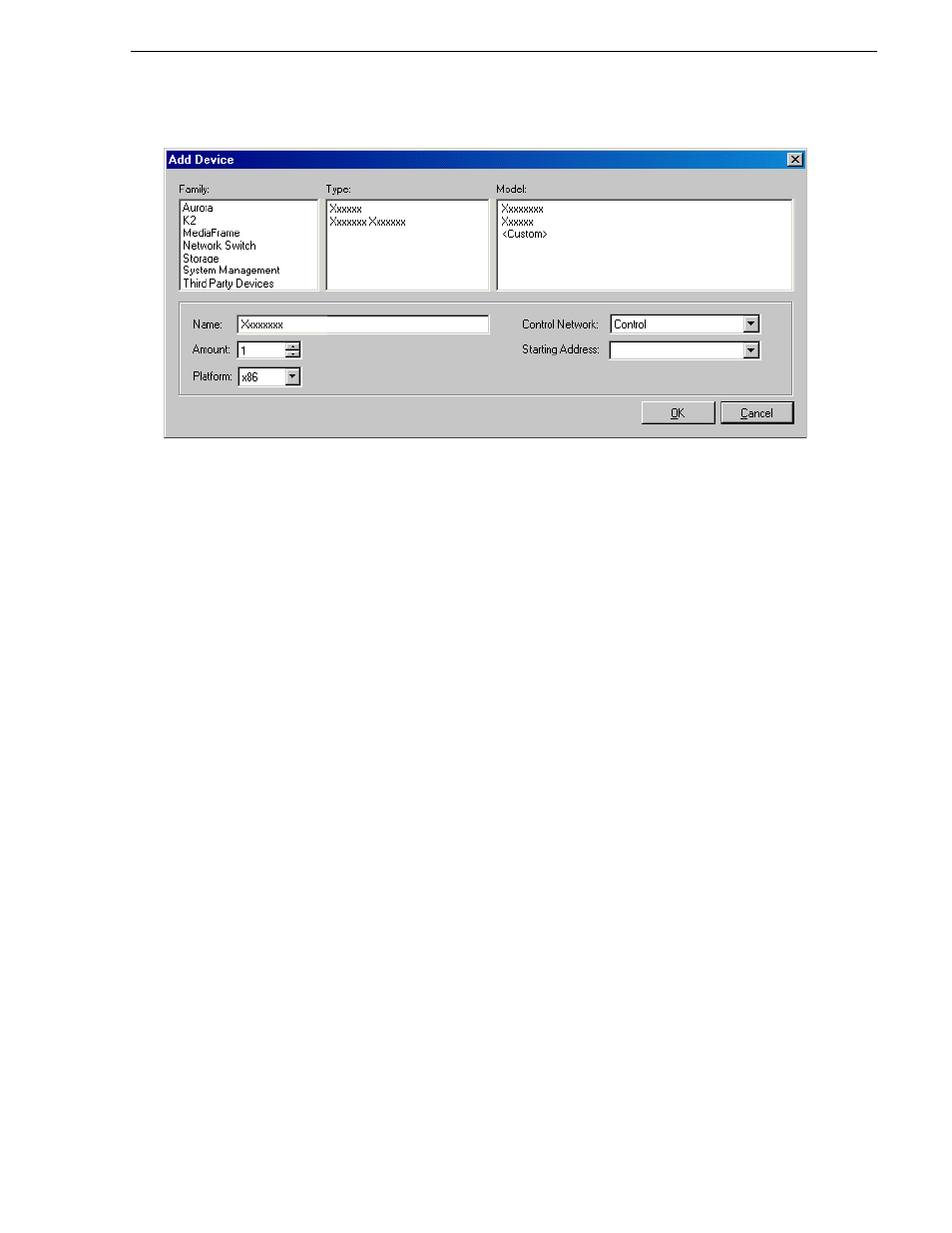Grass Valley K2 System Guide v.7.2 User Manual
Page 135

07 April 2010
K2 System Guide
135
Modifying stand-alone K2 client unassigned (unmanaged) interfaces
2. Configure settings for the device you are adding as follows:
• Family – Select
K2
.
• Type – Select the appropriate type of K2 system.
• Model – Select the model with the appropriate storage.
• Name – This is the device name, as displayed in the SiteConfig device tree view
and device list view. This name can be different than the host name (network
name). You can accept the default name or enter a name of your choice. Devices
in the tree view are sorted alphabetically.
• Amount – You can add multiple devices, as currently defined by your settings
in the Add Device dialog box. An enumerator is added to the name to create a
unique name for each device added.
• Control network– Select the control network.
• Starting Address – Select from the list of available addresses on the selected
control network. If adding multiple devices, this is the starting address, with
addresses assigned sequentially to each device added.
3. Click
OK
to save settings and close.
4. Repeat these steps for each of your stand-alone K2 clients.
Modifying stand-alone K2 client unassigned
(unmanaged) interfaces
Prerequisites for this task are as follows:
• The system description has a stand-alone K2 client that is a placeholder device.
• The placeholder device has a one or more unmanaged network interfaces.
Use this task to modify unmanaged network interfaces on a standalone K2 client as
follows:
